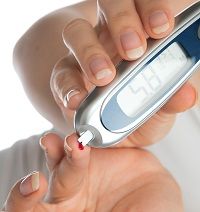Article
Study Shows Some Type 1 Diabetes Patients Still Produce Insulin
Author(s):
A new study has given some doubt to the long-held belief that patients with type 1 diabetes no longer produce insulin even long after their diagnosis.

A new study has given some doubt to the long-held belief that patients with type 1 diabetes no longer produce insulin even long after their diagnosis.
According to researchers at the Benaroya Research Institute at Virginia Mason close to one-third of type 1 diabetes patients could continue to produce insulin even as much as 40 years after their initial diagnosis. The researchers from T1D Exchange said the insulin has been detected in these patients by measuring C-peptide.
The statement noted that insulin was more likely to be found in patients who were diagnosed as adults rather than pediatric patients, and that these findings “provide clinicians proof that residual insulin production can be anticipated in this population, thereby potentially decreasing the risk of misdiagnosis as the more common type 2 diabetes and increasing opportunities for improved treatments to control glucose levels.”
Asa K. Davis, PhD, an investigator in the study and T1D Exchange program manager said the benefits in the diagnoses of both types of diabetes can be important for the future treatment of both patient sets.
“These findings lend further credence to research underway on targeted therapies that could prolong insulin production, helping type 1 diabetes patients better manage their disease and reduce complications,” Davis noted. “For example, potential immunotherapy treatments are already being studied with this goal in mind, and our findings underscore that those diagnosed at a young age may be more likely to benefit from such new approaches.”
Of the 35 million people diagnosed with type 1 diabetes around the world, there will be 30,000 new cases in the United States alone this year. The statement said approximately half of those new cases will be children and added that type 1 diabetes accounts for only 5 to 10 percent of all diabetes cases.
As part of the study, the researchers looked at 919 type 1 patients between the ages 5 and 88 over the course of 3 to 80 years after their diagnosis. The patients were receiving treatment one of 28 T1D Exchange Clinic Network locations. In the 3-to-5-year disease duration C-peptide was found in 78% of patients diagnosed after the age of 18 and in 46% of those diagnosed before turning 18.
The researchers also noted that 16% of the adult-onset type 1 patients and 6% of childhood-onset type 1 diabetes patients had “residual C-peptide more than 40 years from diagnosis.”
“For the first time, we can definitively say that these patients are a true subset of the type 1 diabetes population, which has major clinical and health policy implications,” said Carla J. Greenbaum, MD, director, T1D Exchange Biobank Operations Center at the Benaroya Research Institute.
As a result of the study the authors noted that close to 10% of type 1 diabetes patients, and 20% of patients diagnosed as adults, “may not meet Medicare, Medicaid, and many private insurers’ criteria for an insulin pump, which is based on clinical proof of autoimmunity and a lack of insulin production.”
Davis said the research could help get even more patients the help they need during the course of their treatment.
“Diabetologists have been, at times, confounded by the problem of patients being denied an insulin pump because their C-peptide levels defy the classic definition of the disease.” He added, “We can now quantify the number of patients who demonstrate continued insulin production, which will lead to raised awareness among general practitioners and insurers.”
The study was funded by the Leona M. and Harry B. Helmsley Charitable Trust.




